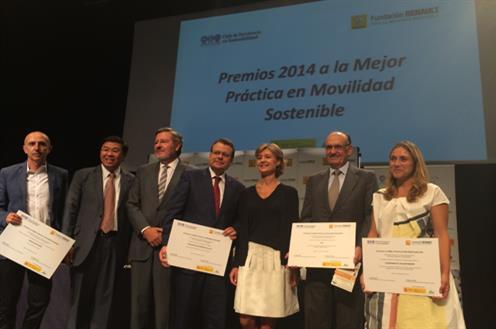MADRID—The Spanish government announced that its country has achieved a decrease of the emissions of greenhouse gases with 15%, due to the renewal of cars and motorcycles. At the same time, it introduced that it will comply with the first commitment period of the Kyoto Protocol.
Concurrently, the World Meteorological Organization (WMO) announced an accelerated growth of CO2 levels in the atmosphere worldwide, up to unprecedented extremes. According to this organization, this is leading the planet to “an irreversible path.”
Isabel García, Minister of Agriculture, Food, and Environment, explained that Spain launched the Boost Plan for Environment (PIMA Aire), aiming at encouraging the use of vehicles which are less polluting. The Minister pointed out that this plan “also contributes to meet Spain’s international commitments on reducing emissions.”
35,000 vehicles and 2,800 motorcycles or pedal assisted bicycles were renovated. This implies an average of 94% reduction in particles emissions per replaced vehicle, as well as a 15% reduction in CO2 emissions, García noted. She also highlighted that this renovation had a “significant” impact on the revival of this industry.
This was the result of the implementation of different national policies to reduce emissions, she expressed. The Weather Projects are one of them, which are in their third edition right now, as well as the launch of the Register of the Carbon Footprint.
“Right now, the first commitment period of the Kyoto Protocol (2008-2012) is being finalized,” said the Minister, adding that the country “will meet its obligations for this period, thanks to the significant efforts made by Spain.”
However, WMO highlighted in its annual bulletin, that human CO2 emissions worldwide are growing, while the biosphere, which is in charge of absorbing them, is decreasing. So, for this organization, the actions that countries have initiated in various human activities, including agriculture, are unsatisfactory so far.
Hence, “far from diminishing, the concentration of CO2 in the atmosphere increased last year, at a pace that had not been seen in almost 30 years,” the report thus said.
The Spanish Minister stressed the importance of private sector participation, and promotion of environmental commitment.
Isabel García participated in the ceremony of ‘Two Awards for Best Practice in Sustainable Mobility’, organized by the Biodiversity Foundation, the Renault Foundation for Sustainable Mobility, and the Sustainability Excellence Club.
“Sustainable mobility”, says the Minister “contributes to improving the health and welfare of citizens, in addition to allowing a more efficient management of resources.”
Regarding the improvement of air quality, she emphasizes that this “is a key feature of the government environmental policy.” Although, advances in environmental matters are the responsibility of all, Isabel García added.




